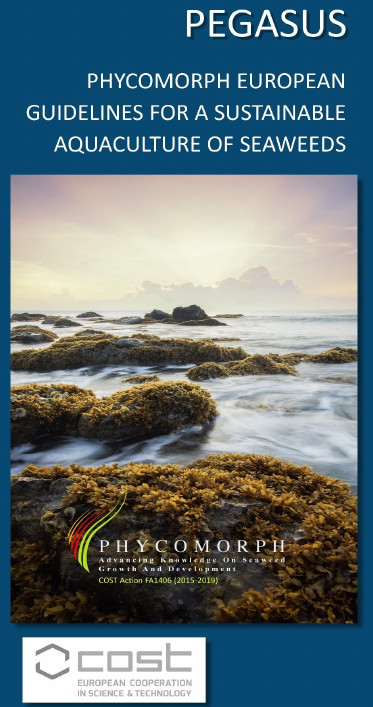PEGASUS
PEGASUS is a 200-page technical document, which highlights the current state of European seaweed production and pinpoints challenges for the development of this sector in the current European context. It proposes recommendations for short-term and long-term improvements at different levels of the chain, namely, best practices, legislation, and regulations that currently apply to the production, with a focus on the consumption of seaweed as food or food supplement. It also proposes a state-of-the-art of the current scientific knowledge regarding the biology and physiology of seaweeds, the possible pest and disease breakouts, and how this biological knowledge could meet the identified industry needs. PEGASUS strongly supports aquaculture practices that guarantee a high level of preservation of the EU wild environment and biodiversity.
As such, PEGASUS has been presented to the Searica (Seas and Coastal Areas Intergroup) group of the European Parliament in February 2019 to stress the need to boost the sustainable development of seaweed aquaculture in Europe and suggest future directions to be followed by policy-makers.
This document is based on work undertaken by COST Action FA1406 “Phycomorph” (2015-2019), supported by COST (European Cooperation in Science and Technology), http://www.phycomorph.org/.
COST (European Cooperation in Science and Technology) is a funding programme for research and innovation networks that enables researchers to set their interdisciplinary research network in Europe and beyond. Our Actions help connect research initiatives across Europe and enable scientists to grow their ideas by sharing them with their peers. By creating open spaces where people and ideas can grow, COST unlocks the full potential of science.



